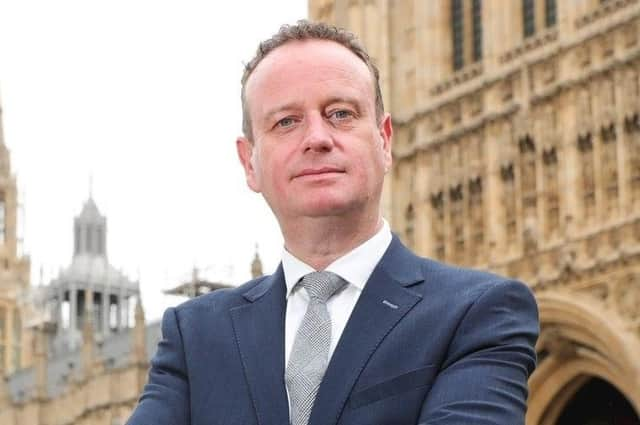Northern Ireland Protocol: ‘We’re just getting on with it’, says manufacturing chief


Stephen Kelly urged politicians here to tackle the problems “now that the election is out of the way”.
Speaking to the News Letter amid speculation the UK government is set to act on the protocol in the coming days, Mr Kelly said: “From a practicalities point of view, businesses are just getting on with it.
Advertisement
Hide AdAdvertisement
Hide Ad“Successive surveys now, not just from a manufacturing point of view but from the Northern Ireland Chamber and others, all point to a business community who say ‘this isn’t the choice that we would have made, but it is the law, and we now need to work hard and solve the problem’. That’s what they’re doing.
“Increasingly from a manufacturers’ perspective, because the stuff that we make has the right to circulate in the EU’s market, people are pointing more towards that unique opportunity that is presented to them – and capitalising on it.”
He acknowledged difficulties, but insisted they could be dealt with.
“It’s still painful,” Mr Kelly said. “There are still problems – it is costly – but people are getting on with it.
Advertisement
Hide AdAdvertisement
Hide Ad“From the perspective of an outsider looking in as an investor, they are frustrated because they can see the opportunity that exists but they are getting this schizophrenic description of whether Northern Ireland is a great place to do business, or whether it is not. And that’s damaging. It is damaging our attractiveness in terms of bringing investment to Northern Ireland and it is damaging confidence in Northern Ireland as a place to come and create jobs for people.”
He added: “We need to resolve this stuff. We can sort the technicalities. We can sort the trade issues. We have been working really closely with the UK government and the EU to say ‘listen, we need you to resolve this’ and once it’s resolved we’re in a much better place and we can move on.
“What business cannot do and will not do is try to resolve the political sensitivities or the constitutional hurt that is out there. So there is really an argument on two fronts – the practicalities and technicalities and we believe the solutions to those are within reach. Then the other is the political and constitutional, which is over to the UK and EU and more particularly it is over to our politicians now that the election is out of the way.”